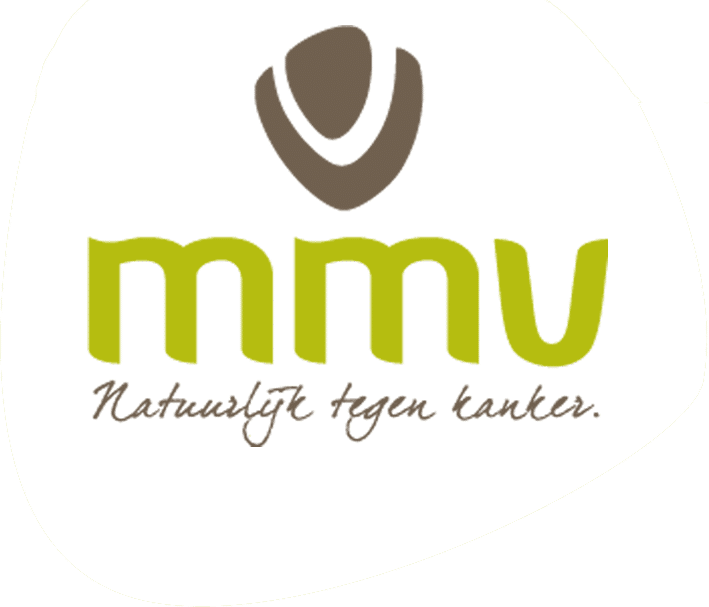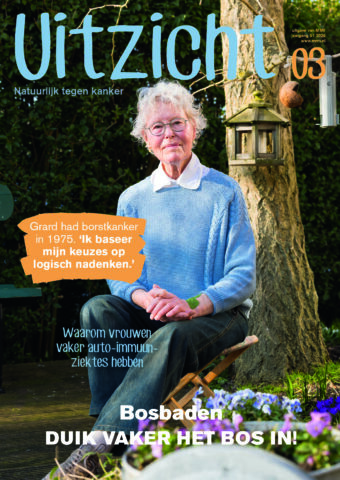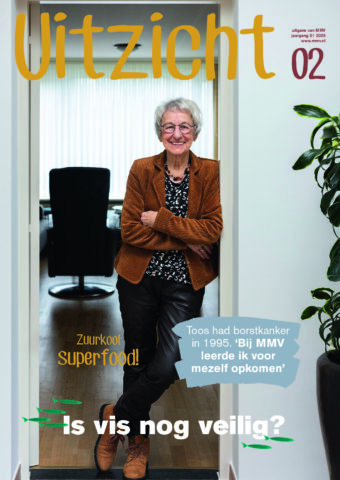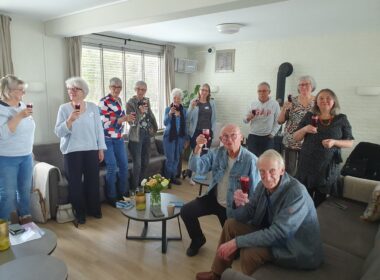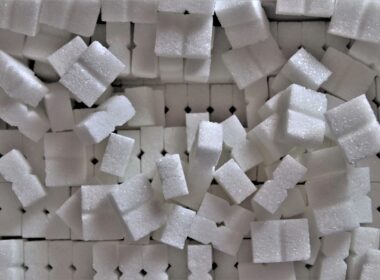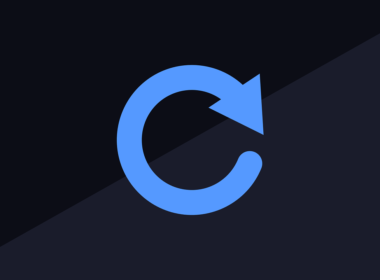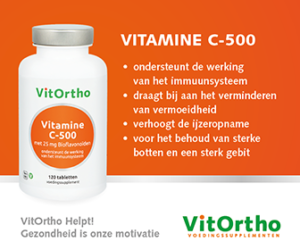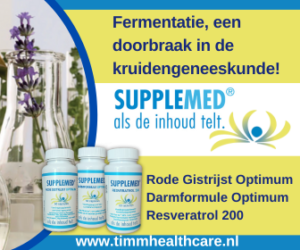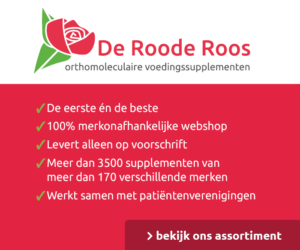Een bevinding uit knaagdieronderzoek bepaalt sinds 2015 dat het gebruik van visolie tijdens chemotherapie een slecht idee is. Zes jaar later is evident dat deze ‘wetenschappelijke waarheid’ volstrekt ten onrechte de oncologische zorg heeft gefrustreerd. Visolie tijdens chemotherapie is juist een prima idee.
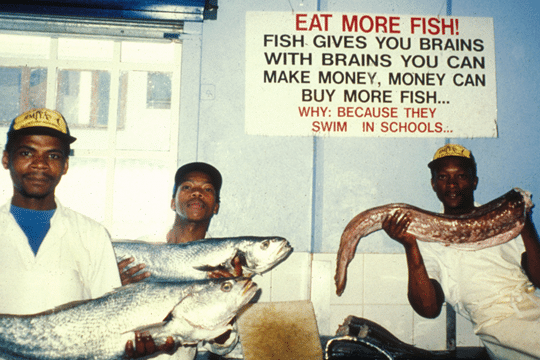
Groot was de ophef toen in 2015 een gerenommeerde onderzoeksgroep in Utrecht adviseerde om tot nader orde geen visolie te gebruiken op de dagen rondom de chemotherapie (1). Het betrof een herhaling van hun advies uit 2011 (2). De aanbeveling was gebaseerd op experimenten in tumor-dragende muizen. Die vertoonden bij behandeling met visolie een resistentie tegen een breed spectrum aan chemotherapeutica. Als boosdoener werd het omega-3 vetzuur 16:4(n-3) aangewezen. Dit vetzuur komt voor in vette vis en visoliesupplementen.
De media pakten ermee uit (3-5). ‘Vette vis en chemotherapie gaan niet goed samen’, kopte NRC (4). ‘Visolie remt het effect van chemo bij kanker’, schreef De Telegraaf (5). De Landelijke Werkgroep Diëtisten Oncologie haastte zich om het advies reeds in september 2011 over te nemen en met het ter perse gaan van dit nummer staat hun advies nog steeds online (6).
Andere onderzoekers ergerden zich aan de ‘fishy conclusions’ (7) en ongebruikelijk vergaande advisering. Waarom waren de honderden publicaties over visolie en kanker in mensen niet meegenomen in de aanbeveling? Sinds wanneer zijn aanbevelingen voor mensen louter op knaagdieronderzoek gebaseerd? Voedingsadviezen zijn voorbehouden aan nationale overheden op basis van de evaluatie van alle gegevens. Dat uit landen waar veel vis wordt gegeten (zoals Japan, Groenland, Noorwegen) geen aanwijzingen komen dat hieruit resistentie tegen chemotherapie voortvloeit (8,9) was blijkbaar niet de moeite van het overdenken waard (10).
Visolievetzuur DHA is ‘gif’ voor tumoren die groeien in een zure omgeving
Reeds lang ziet een groeiende groep onderzoekers visolie als een welkom supplement tijdens chemotherapie (11-19). Er tekent zich een consensus af vóór het gebruik ervan. Vooral omdat het beschermt tegen de door chemotherapie veroorzaakte ontsteking die leidt tot ongewenst verlies van lichaamsgewicht en spiermassa(12,18). Een gerandomiseerd dubbelblind-gecontroleerde studie bij vrouwen met baarmoederhalskanker uit 2019 liet zien dat een hoge dosis visolie de skeletspieren beschermt en zorgt voor minder bijwerkingen (19). In muizen met kanker leidde toediening van omega-3 vetzuren tot een aanzienlijke vertraging van de tumorgroei. De onderzoekers merkten het visolievetzuur DHA aan als ‘gif’ voor tumoren die groeien in een zure omgeving. Zulke tumorcellen vertonen een verhoogde ingroei in weefsels, resistentie en ontsnapping aan het immuunsysteem. De opgenomen DHA wordt in zulke tumorcellen op zeer reactieve wijze geoxideerd (20-22). Vooral voor borst- en maagdarmtumoren bestaat inmiddels (zwak) bewijs voor een verbeterde respons op chemotherapie, het behoud van gewicht en spieren, onderdrukking van ontsteking en afname van bijwerkingen (23). Onderzoek in 2020 in mensen met kleincellig longcarcinoom liet zien dat het vetzuur 16:4(n-3) geen enkele invloed heeft op de respons van platina-gebaseerde chemotherapie, het cytostaticum waarop de Utrechtse onderzoekers hun advies vooral baseerden(24).
Sinds mei 2021 adviseert de gezaghebbende European Society of Clinical Nutrition and Metabolism (ESPEN) mensen met gevorderde kanker die chemotherapie ondergaan visolie te suppleren om de eetlust te stabiliseren of te verbeteren. Waarom? Omdat het ten goede komt aan de eetlust, de spiermassa en het lichaamsgewicht (25). In deze tijd van excuses is nu het wachten op een reactie van de Utrechtse auteurs en de diëtisten, en vooral op het publiekelijk herroepen van hun onzinnig advies op het internet waarvan patiënten mogelijk al tien jaar de dupe zijn.
Beeld: wijlen prof. dr. E. R. Boersma, hoogleraar kindergeneeskunde RUG
1. Daenen LG, Cirkel GA, Houthuijzen JM, Gerrits J, Oosterom I, Roodhart JM, van Tinteren H, Ishihara K, Huitema AD, Verhoeven-Duif NM, Voest EE. Increased Plasma Levels of Chemoresistance-Inducing Fatty Acid 16:4(n-3) After Consumption of Fish and Fish Oil. JAMA Oncol. 2015 Jun;1(3):350-8. doi: 10.1001/jamaoncol.2015.0388. PMID: 26181186.
https://pubmed.ncbi.nlm.nih.gov/26181186/
2. Roodhart JM, Daenen LG, Stigter EC, Prins HJ, Gerrits J, Houthuijzen JM, Gerritsen MG, Schipper HS, Backer MJ, van Amersfoort M, Vermaat JS, Moerer P, Ishihara K, Kalkhoven E, Beijnen JH, Derksen PW, Medema RH, Martens AC, Brenkman AB, Voest EE. Mesenchymal stem cells induce resistance to chemotherapy through the release of platinum-induced fatty acids. Cancer Cell. 2011 Sep 13;20(3):370-83. doi: 10.1016/j.ccr.2011.08.010. PMID: 21907927.
https://pubmed.ncbi.nlm.nih.gov/21907927/
3. ScienceDaily. “Fish oil reduces effectiveness of chemotherapy”. University Medical Center Utrecht. ScienceDaily, 12 September 2011. Accessed 5 August 2015.
https://www.sciencedaily.com/releases/2011/09/110912143257.htm
4. Voormolen S. Vette vis en chemotherapie gaan niet goed samen. NRC vrijdag 3 april 2015. Accessed 8 April 2015.
https://www.nrc.nl/nieuws/2015/04/03/vette-vis-en-chemotherapie-gaan-niet-goed-samen-1483724-a76532
5. Steenhorst R. Visolie remt effect chemo bij kanker_Telegraaf zaterdag 4 april 2015. Accessed 8 April 2015.
https://www.telegraaf.nl/nieuws/836142/visolie-remt-effect-chemo-bij-kanker
6. Advies van de Landelijke Werkgroep Diëtisten Oncologie (LWDO). Visolie en chemotherapie? Accessed 5 August 2021.
https://eoi.nl/download/file:2011-10-visolie-en-chemotherapie-advies-lwdo/name:pasdfioasdfioasdf.htm
7. Murphy RA, Clandinin MT, Chu QS, Arends J, Mazurak VC. A fishy conclusion regarding n-3 fatty acid supplementation in cancer patients. Clin Nutr. 2013 Jun;32(3):466-7. doi: 10.1016/j.clnu.2012.05.013. Epub 2012 Jun 15. PMID: 22705090.
https://pubmed.ncbi.nlm.nih.gov/22705090/
8. Mazurak VC, Calder PC, van der Meij BS. Let Them Eat Fish. JAMA Oncol. 2015 Sep;1(6):840. doi: 10.1001/jamaoncol.2015.2053. PMID: 26355863.
https://pubmed.ncbi.nlm.nih.gov/26355863/
9. Baracos V. Let Them Eat Fish. JAMA Oncol. 2015 Sep;1(6):840-1. doi: 10.1001/jamaoncol.2015.2059. PMID: 26355864.
https://pubmed.ncbi.nlm.nih.gov/26355864/
10. Daenen LG, Voest EE. Let Them Eat Fish–Reply. JAMA Oncol. 2015 Sep;1(6):841. doi: 10.1001/jamaoncol.2015.2056. PMID: 26355866.
https://pubmed.ncbi.nlm.nih.gov/26355866/
11. Bougnoux P, Hajjaji N, Ferrasson MN, Giraudeau B, Couet C, Le Floch O. Improving outcome of chemotherapy of metastatic breast cancer by docosahexaenoic acid: a phase II trial. Br J Cancer. 2009 Dec 15;101(12):1978-85. doi: 10.1038/sj.bjc.6605441. Epub 2009 Nov 17. PMID: 19920822; PMCID: PMC2779856.
https://pubmed.ncbi.nlm.nih.gov/19920822/
12. Murphy RA, Yeung E, Mazurak VC, Mourtzakis M. Influence of eicosapentaenoic acid supplementation on lean body mass in cancer cachexia. Br J Cancer. 2011 Nov 8;105(10):1469-73. doi: 10.1038/bjc.2011.391. Epub 2011 Oct 4. PMID: 21970879; PMCID: PMC3242518.
https://pubmed.ncbi.nlm.nih.gov/21970879/
13. Vaughan VC, Hassing MR, Lewandowski PA. Marine polyunsaturated fatty acids and cancer therapy. Br J Cancer. 2013 Feb 19;108(3):486-92. doi: 10.1038/bjc.2012.586. Epub 2013 Jan 8. PMID: 23299528; PMCID: PMC3593545.
https://pubmed.ncbi.nlm.nih.gov/23299528/
14. Mansara P, Ketkar M, Deshpande R, Chaudhary A, Shinde K, Kaul-Ghanekar R. Improved antioxidant status by omega-3 fatty acid supplementation in breast cancer patients undergoing chemotherapy: a case series. J Med Case Rep. 2015 Jun 24;9:148. doi: 10.1186/s13256-015-0619-3. PMID: 26104023; PMCID: PMC4486087.
https://pubmed.ncbi.nlm.nih.gov/26104023/
15. Serini S, Ottes Vasconcelos R, Fasano E, Calviello G. How plausible is the use of dietary n-3 PUFA in the adjuvant therapy of cancer? Nutr Res Rev. 2016 Jun;29(1):102-25. doi: 10.1017/S0954422416000044. Epub 2016 May 13. PMID: 27172872.
https://pubmed.ncbi.nlm.nih.gov/27172872/
16. Gulbake A, Jain A, Jain A, Jain A, Jain SK. Insight to drug delivery aspects for colorectal cancer. World J Gastroenterol. 2016 Jan 14;22(2):582-99. doi: 10.3748/wjg.v22.i2.582. PMID: 26811609; PMCID: PMC4716061.
https://pubmed.ncbi.nlm.nih.gov/26811609/
17. Camargo Cde Q, Mocellin MC, Pastore Silva Jde A, Fabre ME, Nunes EA, Trindade EB. Fish oil supplementation during chemotherapy increases posterior time to tumor progression in colorectal cancer. Nutr Cancer. 2016;68(1):70-6. doi: 10.1080/01635581.2016.1115097. Epub 2015 Dec 23. PMID: 26700096.
https://pubmed.ncbi.nlm.nih.gov/26700096/
18. Gorjao R, Dos Santos CMM, Serdan TDA, Diniz VLS, Alba-Loureiro TC, Cury-Boaventura MF, Hatanaka E, Levada-Pires AC, Sato FT, Pithon-Curi TC, Fernandes LC, Curi R, Hirabara SM. New insights on the regulation of cancer cachexia by N-3 polyunsaturated fatty acids. Pharmacol Ther. 2019 Apr;196:117-134. doi: 10.1016/j.pharmthera.2018.12.001. Epub 2018 Dec 4. PMID: 30521881.
https://pubmed.ncbi.nlm.nih.gov/30521881/
19. Aredes MA, da Camara AO, de Paula NS, Fraga KYD, do Carmo MDGT, Chaves GV. Efficacy of ω-3 supplementation on nutritional status, skeletal muscle, and chemoradiotherapy toxicity in cervical cancer patients: A randomized, triple-blind, clinical trial conducted in a middle-income country. Nutrition. 2019 Nov-Dec;67-68:110528. doi: 10.1016/j.nut.2019.06.009. Epub 2019 Jun 14. PMID: 31445316.
https://pubmed.ncbi.nlm.nih.gov/31445316/
20. Dierge E, Larondelle Y, Feron O. Cancer diets for cancer patients: Lessons from mouse studies and new insights from the study of fatty acid metabolism in tumors. Biochimie. 2020 Nov;178:56-68. doi: 10.1016/j.biochi.2020.08.020. Epub 2020 Sep 3. PMID: 32890677.
https://pubmed.ncbi.nlm.nih.gov/32890677/
21. Dierge E, Debock E, Guilbaud C, Corbet C, Mignolet E, Mignard L, Bastien E, Dessy C, Larondelle Y, Feron O. Peroxidation of n-3 and n-6 polyunsaturated fatty acids in the acidic tumor environment leads to ferroptosis-mediated anticancer effects. Cell Metab. 2021 Aug 3;33(8):1701-1715.e5. doi: 10.1016/j.cmet.2021.05.016. Epub 2021 Jun 11. PMID: 34118189.
https://pubmed.ncbi.nlm.nih.gov/34118189/
22. Press release – UCLouvain research. An Omega-3 that’s poison for tumours. Accessed 5 August 2021
https://uclouvain.be/en/discover/press/news/an-omega-3-that-s-poison-for-tumours.html
23. Klassen P, Cervantes M, Mazurak VC. N - 3 fatty acids during chemotherapy: toward a higher level of evidence for clinical application. Curr Opin Clin Nutr Metab Care. 2020 Mar;23(2):82-88. doi: 10.1097/MCO.0000000000000627. PMID: 32004238.
https://pubmed.ncbi.nlm.nih.gov/32004238/
24. van der Meij BS, Teleni L, Stanislaus AE, Murphy RA, Robinson L, Damaraju VL, Chu Q, Sawyer MB, Mazurak V. Plasma levels of platinum-induced fatty acid [16:4n-3] do not affect response to platinum-based chemotherapy: A pilot study in non-small cell lung cancer patients. Clin Nutr ESPEN. 2020 Dec;40:263-268. doi: 10.1016/j.clnesp.2020.09.009. Epub 2020 Oct 7. PMID: 33183547.
https://pubmed.ncbi.nlm.nih.gov/33183547/
25. Muscaritoli M, Arends J, Bachmann P, Baracos V, Barthelemy N, Bertz H, Bozzetti F, Hütterer E, Isenring E, Kaasa S, Krznaric Z, Laird B, Larsson M, Laviano A, Mühlebach S, Oldervoll L, Ravasco P, Solheim TS, Strasser F, de van der Schueren M, Preiser JC, Bischoff SC. ESPEN practical guideline: Clinical Nutrition in cancer. Clin Nutr. 2021 May;40(5):2898-2913. doi: 10.1016/j.clnu.2021.02.005. Epub 2021 Mar 15. PMID: 33946039.
MMV maakt wekelijks een selectie uit het nieuws over voeding en leefstijl in relatie tot kanker en andere medische condities.
Inschrijven nieuwsbrief
